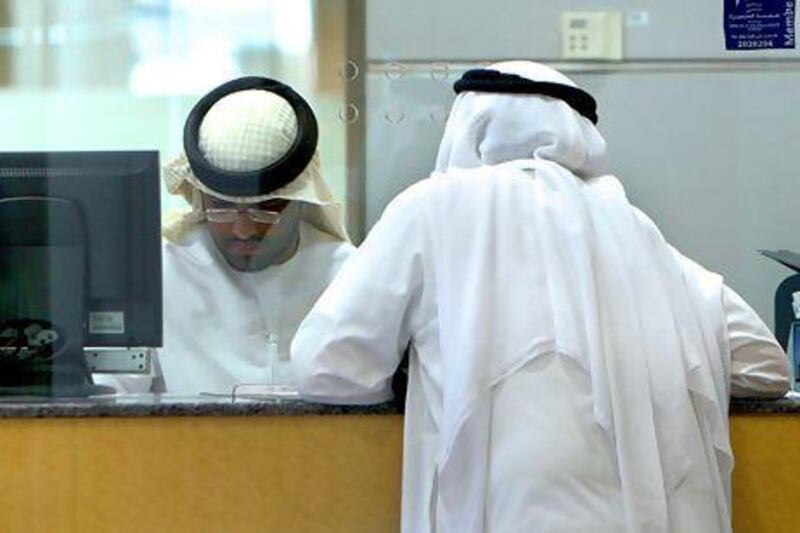The high failure rate of cheques in the country is not the fault of the cheques themselves, say banks and ATM vendors.
Nor is the UAE's clearing infrastructure to blame.
Manufacturers of ATMs say that there are no technical reasons that cause more cheques to fail in the Emirates than other markets where the same technology is used and that recent improvements have made cheque use almost foolproof.
NCR, the world's biggest vendor of ATMs by market value and a major manufacturer of cheque-counting devices used in the Emirates, said its cheque-acceptance systems were robust and there were no specific technological challenges causing cheques to fail.
"NCR specifically does not face any technical issues with cheque deposits on its ATMs," a spokesman for the company said.
A total of 1.4 million cheques were returned as invalid at the point of use last year, representing payments worth Dh46.8 billion (US$12.74bn), according to the Central Bank.
The proportion returned as invalid - about one in every 20 cheques - is nearly 10 times higher than in developed markets such as the United Kingdom.
The Central Bank does not distinguish in its data between cheques that fail for technical reasons and those that bounce.
Bouncing a cheque in the UAE is a criminal offence, although Emiratis have been immunised from being sent to jail for bounced security cheques. Customers whose cheques fail four times are cut off from the financial system, which can impair banks' ability to recover funds if customers have debts spread across multiple lenders.
Banks have called for the creation of a federal credit bureau to better assess customers' indebtedness.
Despite the high failure rate of cheques in the Emirates, banks had made no specific requests to improve their ability to process cheques, said Ian Thomas, the regional product marketing manager and head of core and deposit automation at Diebold, another ATM vendor.
Although cheque handling has improved over the past decade, with updates including ensuring that a cheque can be inserted in any direction, the amount invested in improving automated handling of cheques was likely to decline in the years ahead, he said.
"The cheque is prevalent here in the UAE," he said. "Everywhere else in general terms the cheque is in decline. I don't think there's going to be a huge investment in countries in the infrastructure to process cheques."
The number of cheques presented to banks increased by 1.8 per cent last year to 29 million, with funds totalling Dh1.1 trillion, according to Central Bank data.
Commercial lenders say that because the law requires that cheques are cleared within a day of a transaction taking place, banks have invested in ensuring cheques can be processed smoothly.
HSBC Middle East has already upgraded most of its systems to ensure that cheque failure for technical reasons is not an issue, said Rick Crossman, the bank's head of retail banking and wealth management.
"We certainly make every effort to ensure that cheques not clearing as a result of operational issues is minimised," he said. Having upgraded many of its ATMs during the past two years, HSBC plans to upgrade the rest this year.
The laws criminalising bounced cheques have come into sharp focus in recent months, with a consensus emerging among banks, politicians and economists that the current laws are out of date.
The Central Bank said it was reviewing the numbers of UAE nationals who had defaulted on their debts as concerns grew about banks' ability to assess their customers' default risk without a credit bureau.





